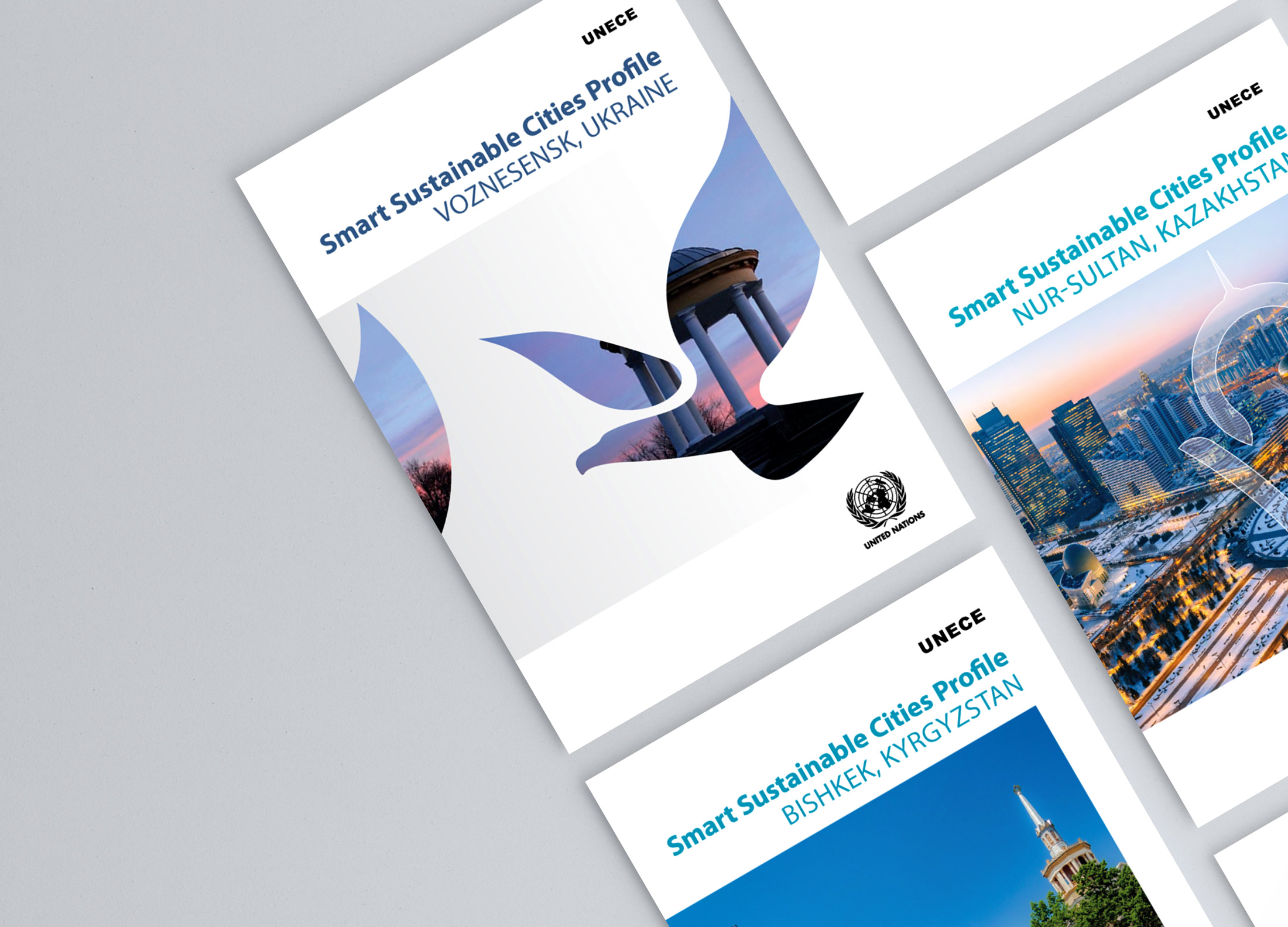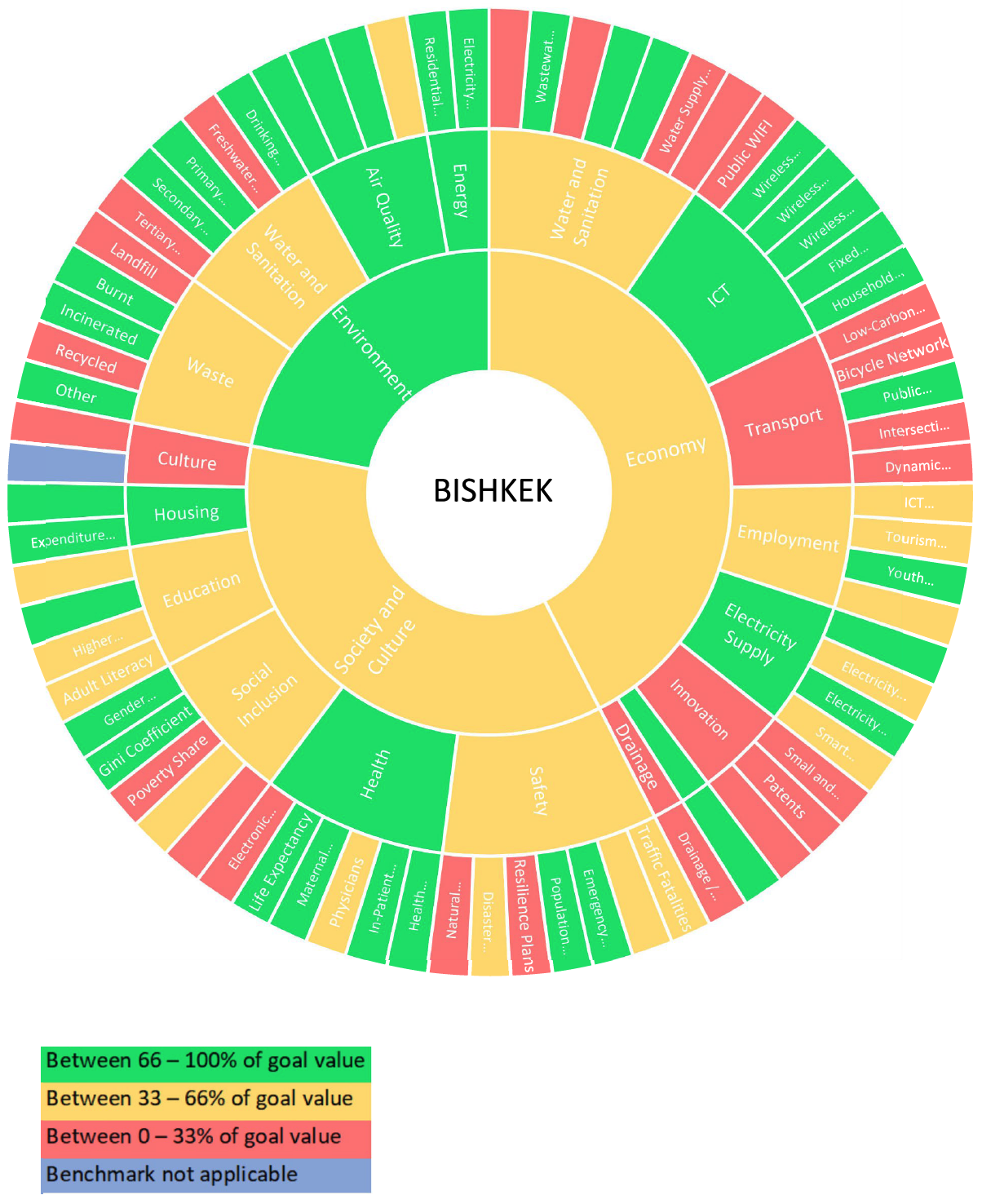
The project on innovative financing for sustainable smart cities (United Nations Development Account, 12th tranche) implemented by UNECE supports local governments in four different UNECE subregions – Eastern Europe (Belarus), South-Eastern Europe (Montenegro), Caucasus (Georgia) and Central Asia (Kazakhstan and Kyrgyzstan) – in their transitions towards making cities smart and sustainable. The project supports implementation of SDG 11 and specifically the targets on access for all to affordable decent housing (SDG target 11.1) and on inclusive and sustainable urbanization (SDG target 11.3). The project also promotes improved air and water quality through better cities’ planning and design (SDG targets 3.9. and 6.1.) and more sustainable use of energy (SDG target 7.3).
The five cities engaged in the cooperation are Bishkek, Kyrgyzstan; Astana, Kazakhstan; Tbilisi, Georgia; Grodno, Belarus; and Podgorica, Montenegro. They all face similar challenges that include an insufficient capacity of city governments to develop evidence-based policies for smart sustainable development at the local level, and an insufficient capacity to facilitate funding for developing their urban infrastructure projects. These challenges prevent cities from achieving the SDGs at the local level, as they lack the local capacity to develop evidence-based policies and to facilitate funding for infrastructure projects.
As part of the project, UNECE works to improve local capacity to develop and implement sustainable urban policies through: (i) evaluation of cities’ performance and the drafting analytical smart sustainable cities profiles; (ii) capacity-building activities to promote evidence-based policies and vertical and horizontal coordination among different government agencies, with the participation of the cities’ public; (iii) policy to support city governments in acquiring funding to support smart sustainable cities projects. The project
supports the development of the smart sustainable cities profiles through the application of the UNECE/ITU Key Performance Indicators for Smart Sustainable Cities (KPIs for SSC), a United Nations standard developed by UNECE and ITU in 2015. The cities’ performance is evaluated against the indicators; based on the evaluation, city profiles are developed which include concrete policy recommendations to the cities, including for concrete urban infrastructure projects.
The KPI evaluation establishes a baseline, a snapshot of how well the city is advanced with addressing its urban challenges and achieving the SDGs at local level. For instance, in the case of the city of Bishkek (Figure 18), the KPI evaluation showed low performance on issues of water and solid waste management and urban transport. Based on the evaluation, UNECE formulated concrete recommendations for improvement and proposals for specific actions to be taken to address the challenges.
Following the development of the first city profile which establishes a baseline for the performance of a city, it is possible to prepare in a few years later the second profile which will allow to measure progress with smartness and sustainability.
The improvements depend to great extent on political stability and political commitment of the cities. For instance, the Bishkek city government is committed to cooperation with UNECE. Based on the recommendations of the Bishkek smart sustainable city profile, a key priority for funding was identified: improvement of the informal settlements which are part of the city. Following that, UNECE has conducted a survey to map the informal settlements and then partnered with the Cities Development Initiative for Asia (CDIA) to design a prefeasibility study aimed at the integrated upgrading of five informal settlements and for job creation. As the CDIA provided $500,000 towards the pre-feasibility study to be implemented in 2023, UNECE is engaged to mobilize partnerships with international financial institutions to finance the upgrading of informal settlements beyond the pre-feasibility study phase. Similar work is under way to promote innovative financing approaches in other pilot cities engaged in the project.
Following the development of the city profile with policy recommendations, UNECE organized capacity-building activities for the local government officials on evidence-based urban policies, including on urban data collection, analysis and use of the data in the decisionmaking. It further supported with policy advice and capacity building for raising external funding to support urban infrastructure projects.
The performance of Bishkek against the Key Performance Indicators for Smart Sustainable Cities

Source: UNECE (2022). Smart Sustainable Cities profile: Bishkek, Kyrgyzstan. Geneva: United Nations.